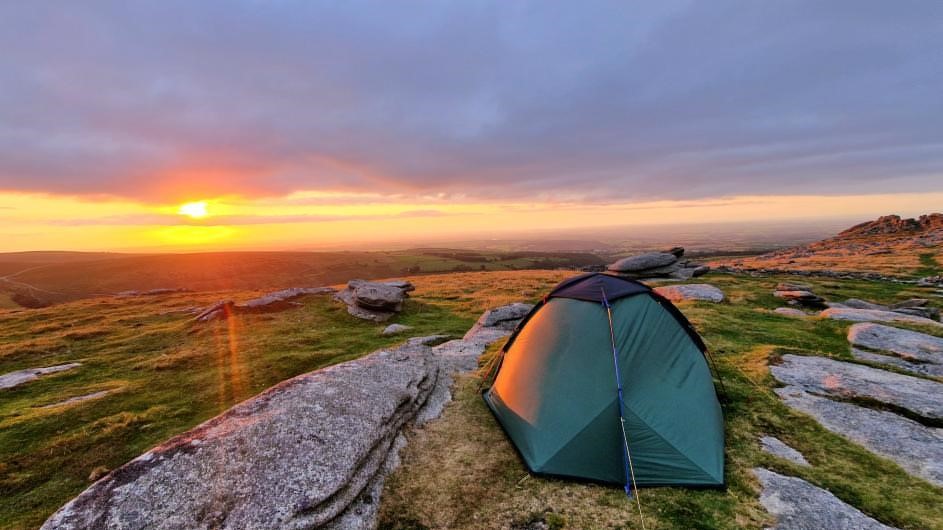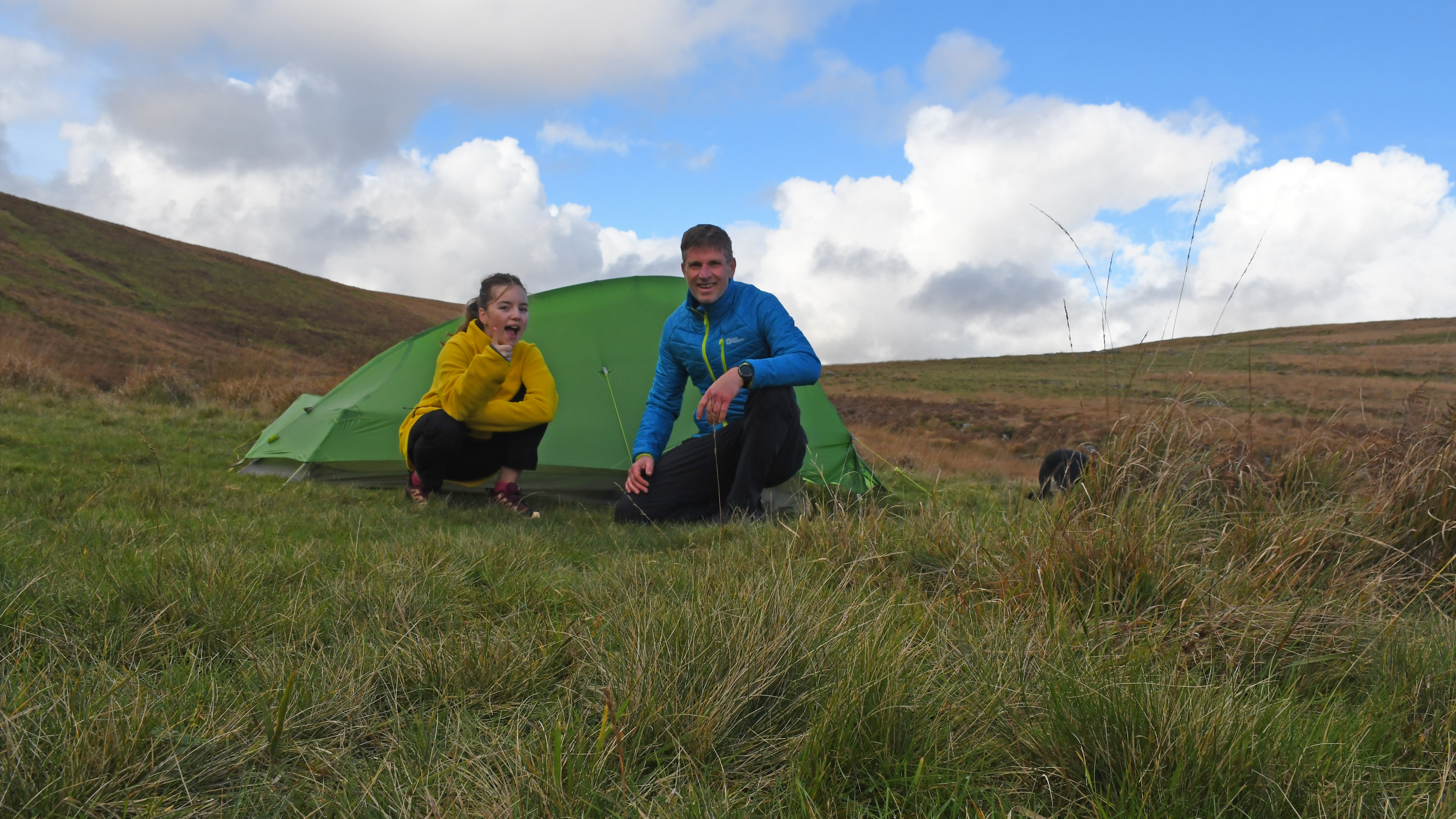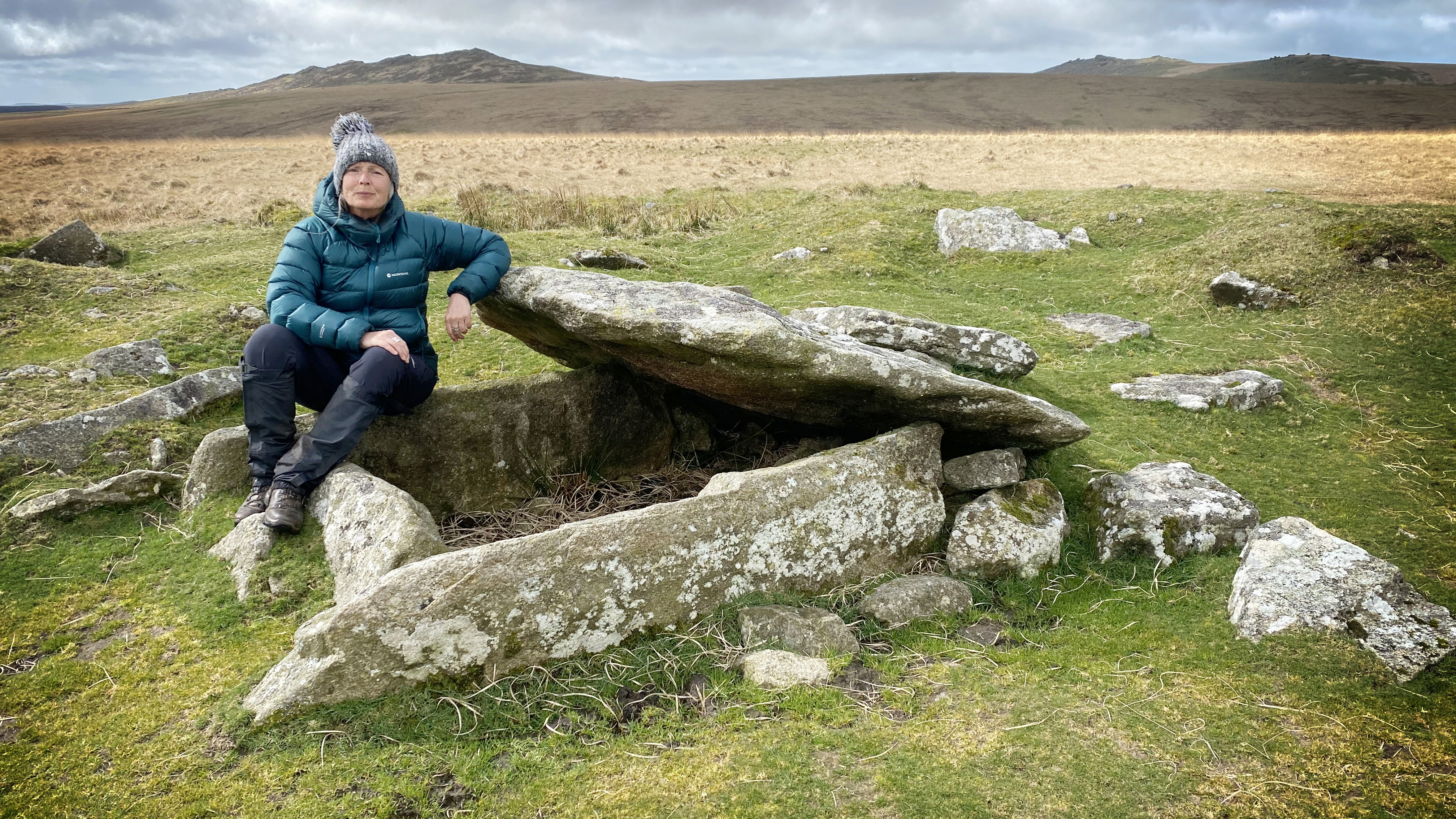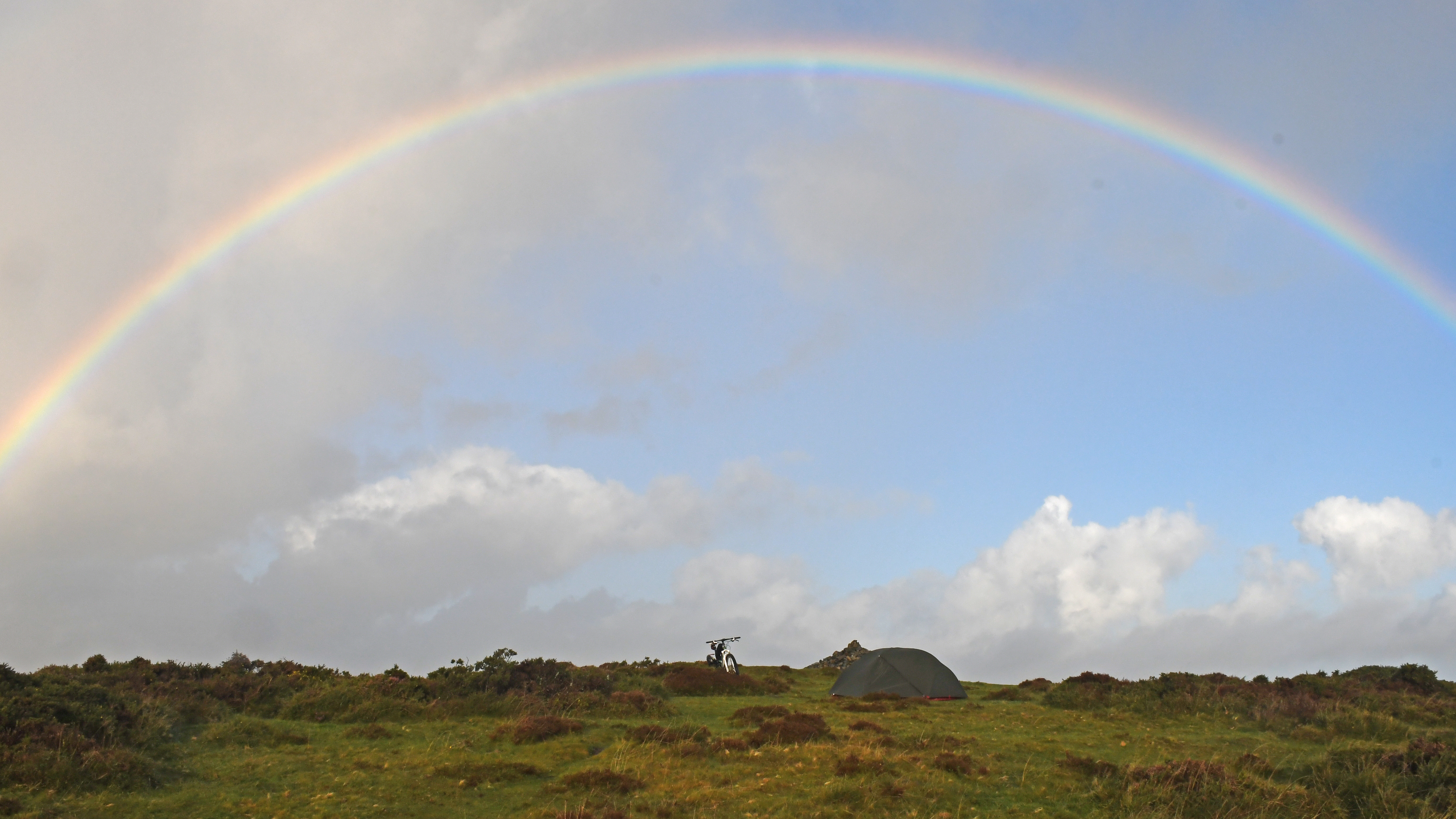OPINION: Furore over fly camping on Dartmoor misses the point
Our consulting editor Pat Kinsella says, if you exclude the population of a nation from the vast majority of their own countryside, then there’s bound to be trouble

All the latest inspiration, tips and guides to help you plan your next Advnture!
You are now subscribed
Your newsletter sign-up was successful
As someone who attended every rally and protest about the recent attempt by a wealthy landlord to remove the right to legally wild camp on Dartmoor, and a regular wild camper myself, I dread waking up to news reports such as this one, claiming there has been a surge in fly camping since the Supreme Court ruled in favor of the general public retaining the right to spend the night on the moor.
The first thing that raises my hackles (after the fact that some people will stoop to such conduct) is the instant and seemingly gleeful conflation of wild camping with nuisance camping and general bad behaviour in the outdoors. Although the article does admittedly make an attempt to explain the ethics of wild camping as opposed to fly camping, the dots are neatly set out for the casual reader to join the two activities, as if one is an inevitable consequence of the other.
In reality, the fly camping described in the BBC piece has absolutely nothing to do with wild camping, and there are already laws in place proscribing such destructive behaviour. Wild camping involves hiking or biking some distance into a remote place with things you can carry in a backpack (ie not a generator, large speakers and a coolbox full of beer), and then leaving the area at least as pristine as you found it (many wild campers will remove litter left by others).

Going wild
Had the recent court case gone the other way, this problematic activity would very likely still be happening (especially in a summer that has seen four freakish heatwaves so far), but all the responsible wild campers would have been criminalised or deterred from spending time on Dartmoor as well, leaving fewer people to help clear up the resulting mess and/or alert authorities to serious wrongdoing taking place in the National Park.
To draw an analogy: it’s currently perfectly acceptable all over Britain to enjoy a picnic in a park with friends, but that doesn’t make it OK to drive across the grass, chuck empty soda cans and McDonald’s wrappers all over the place, bust out a sound system, hold an impromptu rave and leave your old sofa and busted fridge in the hedge.
These two sets of behaviors are pretty clearly distinct from one another, right? Well, it’s the same with wild camping and fly camping. Except no one is suggesting that a countrywide ban on picnicking is a good idea, or that responsible sandwich munchers should all be criminalized.

Under Pressure
Did the court case and media coverage of it draw attention to the fact that Dartmoor is the only place in the whole of England and Wales that you can legally camp in a natural setting without paying for the privilege? Yes, of course it did. And that has inevitably increased the numbers of people visiting the moor to do just that, which only goes to highlight how ludicrous that situation is.
All the latest inspiration, tips and guides to help you plan your next Advnture!
Some people literally drive down the country to Devon from the North and the Midlands, passing all kinds of wonderful wild places, just so they can enjoy a night under the stars on Dartmoor without the threat of getting moved on. And the vast majority of these people proceed to wild camp completely responsibly, but they should be free to do this in myriad remote spots around the country.
To draw another analogy – currently anyone and everyone is free to fish from any publicly accessible beach or headland in Britain, without a permit (and, sadly, some of the people who interpret that right in entirely the wrong way leave broken beer bottles and fishing line laced with hooks behind on the sand for kids and dogs to find with their feet the next day). Can you imagine if ‘wild fishing’ was legal in just a couple of coves in one county – picture the pressure that would put that small piece of coastline under.

Optics and evidence
Part of the problem with fly camping is that it only takes a few groups of people doing it to create a massive and very visible mess. An increase in real wild campers is much harder to monitor, because they leave no trace (and therefore cause no problems).
“We have seen lots more wild campers coming to spend time in popular areas such as Postbridge recently,” says Gillian Heally – who is a Dartmoor Guide, running walking excursions across the moor, and a co-ordinator for The Stars are for Everyone, a group that has been at the forefront of the fight for the continued right to wild camp on Dartmoor. “But the next day you wouldn’t know anyone had been there.”
Sadly, the same is not true when you get an increase in vehicle visitation, whether people stay overnight in vans or tents (and, once again for those at the back, camping by your car is not wild camping), or just come for the day.
“I’m on a forum for outdoor leaders, and there has been a lot of talk this summer about the rise in problem behaviour like littering in popular outdoor areas across the country,” Gillian tells me. “And just look at the state festival sites are left in. We live in a throw-away culture. I think the best solution is through education – not through putting up barriers stop people going outdoors.”

Access and education
And this is the crux of the problem. If you make it hard, or impossible, for groups and families to take children out and legally spend quality time in the wilderness, how can you expect the next generation to know how to behave in, or to properly value, green spaces? And corralling campers into paid-for sites (as good as many of them are) just teaches people there’s a litter bin on every corner, which isn’t the case in the wild, where you need to pack everything back out with you.
The fact there’s still only one tiny corner of one county in the whole of England and Wales where you are allowed to do something as simple as sleep outside is staggering. And the attention that has been brought to this ridiculous situation has obviously increased pressure on parts of Dartmoor – especially in a post-lockdown era of outdoor online influencers (many of whom, to be fair, do stress the importance of leave no trace ethics) with enormous followings.
And this is why organisations such as the BMC are pushing for an expansion of the right to wild camp across the country, in a campaign I passionately support. But wherever you stand on the issue, make sure you leave the spot at least as green, clean, pretty and pristine as it was when you found it in the first place.

Author of Caving, Canyoning, Coasteering…, a recently released book about all kinds of outdoor adventures around Britain, Pat has spent 20 years pursuing stories involving boots, bikes, boats, beers and bruises. En route he’s canoed Canada’s Yukon River, climbed Mont Blanc and Kilimanjaro, skied and mountain biked through the Norwegian Alps, run an ultra across the roof of Mauritius, and set short-lived records for trail-running Australia’s highest peaks and New Zealand’s Great Walks. He’s authored walking guides to Devon and Dorset, and once wrote a whole book about Toilets for Lonely Planet. Follow Pat’s escapades on Strava here and Instagram here.
